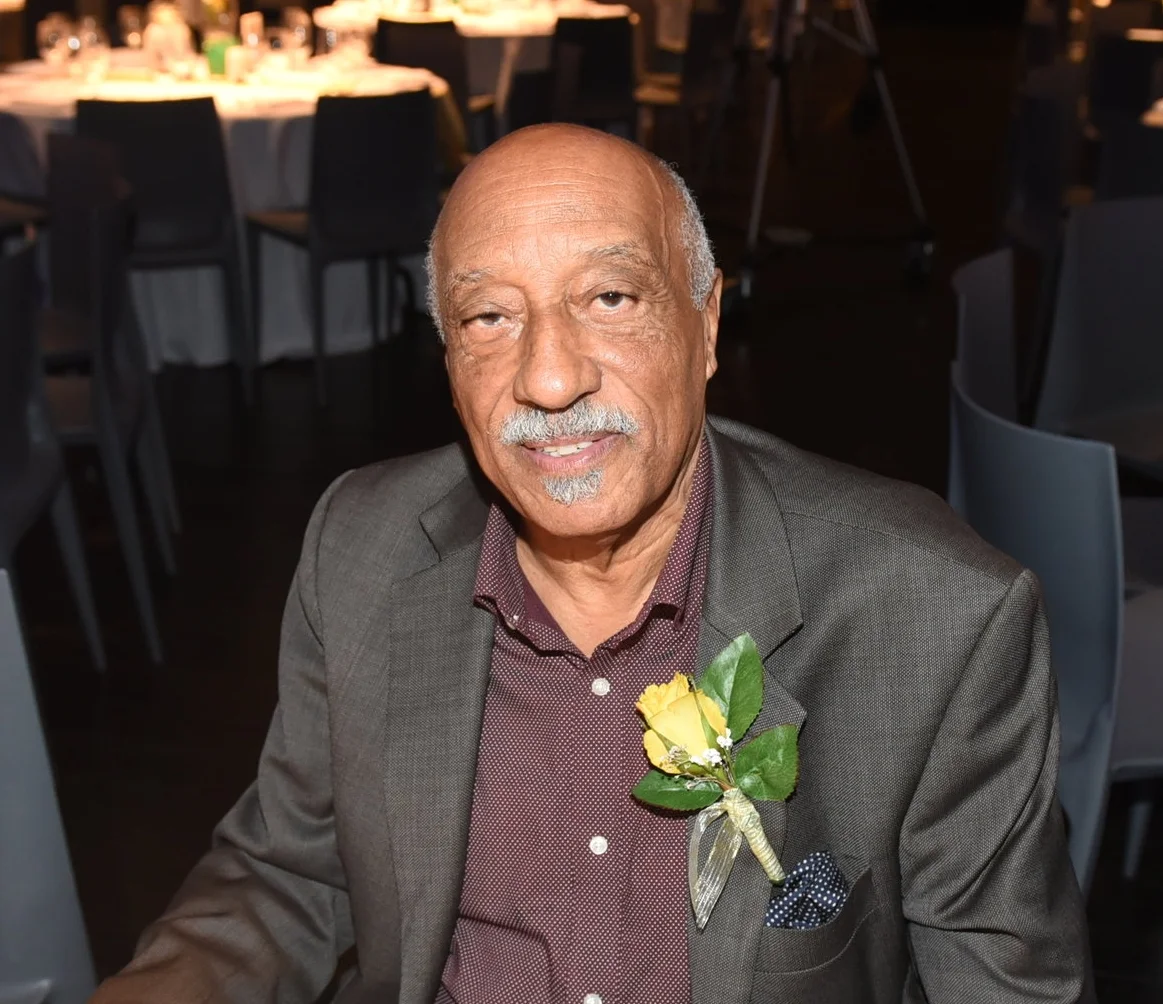Ethiopian excellence recognized at Bikila Awards
Aware that her parents fled war-ravaged Ethiopia two decades ago for a better life in Canada, Hannah Godefa pledged to make their transition to a new environment worthwhile.
The elder of two siblings was recognized for academic and community excellence at the second annual Bikila Awards celebration last Saturday night.
Godefa, who turns 18 next month and was the second youngest recipient of the Queen Elizabeth II Diamond Jubilee Medal, graduated this year with honours from St. Elizabeth Catholic High School in Thornhill and is attending an American university.
“It’s really special to be recognized by my community because so many individuals here have mentored me, encouraged me and supported me along the way,” she said. “This is like everything coming together and to be honoured by such an incredible organization really means a lot.”
She said some of the giants on whose shoulders she stands are her parents, Godefa Asegahagn and Tekla Alemayehu and University of Oxford doctoral candidate, Alpha Abebe, who attended the awards ceremony.
“My parents have always been there for me and Alpha helped me orchestrate what I wanted to do with my life,” said Godefa, who is the only Canadian high school graduate this year to receive an invitation to become a Robertson Scholar and receive an undergraduate merit scholarship to attend Duke University.
This year’s class of 32 comes from six countries and 15 American states.
The Robertson Scholars Leadership Program invests in young leaders who strive to make transformational contributions to society. Scholars are selected based on outstanding academic achievement, intellectual curiosity, moral character, purposeful leadership and collaborative spirit.
Participants are entitled to full tuition, room and board and mandatory fees for four years of undergraduate studies in addition to three summers of domestic and international experiences.
Aspiring for higher education has not prevented Godefa from engaging in meaningful community service.
Two years ago, she was appointed a UNICEF national ambassador for Ethiopia. She has used that position to inspire young girls to pursue their dreams and she developed public service announcements advocating for girls’ education in Ethiopia.
“While I grew up in Canada, I have strong ties to Ethiopia where I still have many family members and I have visited on several occasions,” said Godefa, who is also a child advocate for South Sudan. “For me, I want a world where happiness and safety for children is not just a dream but a reality.”
Director and dramaturge, Weyni Mengesha, was the recipient of a Professional Excellence Award.
Weyni Mengesha (Photo by Ron Fanfair)
“This is such a great honour,” she said. “What makes it even more special is that it’s coming from my community.”
Born in Vancouver 37 years ago to Ethiopian immigrants, Mengesha moved to Toronto at age 16 and rose to prominence on the Canadian theatrical scene after directing Da Kink in my Hair that boasted the highest ticket sales at the Fringe Festival in 2001 and was nominated for four Toronto Theatre Dora awards. She also composed the Dora-nominated score.
Moving to Los Angeles four years ago, she produced her first short film – Hero, Traitor, Patriot – that recently played at five film festivals and her first play created in California, Bars & Measures, goes into production next summer.
Mengesha is the mother of two young boys, ages two-and-a-half years and six months.
“Motherhood has taught me to keep things in perspective,” said the 2002 Harry Jerome Award recipient. “I used to worry about the little things. I have always been motivated to tell stories, but with my two little boys and watching the world through their eyes, it’s important that what they see positively reflect who they are.”
Mengesha directs the gripping political thriller, Butcher, that opens later this month and, with Mitchell Cushman, co-directs Breath of Kings, which is a commissioned two-part exploration of Shakespeare’s four-play Henriad history cycle brought to life by Graham Abbey. It will highlight the 2016 Stratford Festival.
Professional Excellence Awards were also presented to former Ethiopian Tourism minister, Habte Selassie Tafesse, who played a key role in creating the Ethiopian exhibit for Expo 67 in Montreal; Dr. Ingeda Asfaw, who is the chief of cardiovascular surgery at Sinai-Grace Hospital in Detroit; International Atomic Energy Agency nuclear safeguards specialist, Mulugeta Desta; McMaster University professor, Dr. Joseph Beyene, who is the inaugural holder of the John D. Cameron Chair in Genetic Determinants of Chronic Diseases and Vancouver-based artist, Yared Nigussu.
“While this honour is overwhelming for me, I hope it will inspire and empower young artists to pursue their dreams,” said Ethiopia-born Nigussu, who spent three years in France before coming to Canada.
Betel Yiberhu and Kalkidan Legesse were recognized with scholarships and academic excellence awards, while Gelila Ephrem and Bekure Mekbib received awards for scholarly excellence. The Ethiopian Orthodox Tewahedo St. Mary’s Church was honoured with a Community Service Award.
Howard University film professor, Haile Gerima, was the keynote speaker at the awards ceremony.
Migrating to the United States in 1967 to study at the Goodman School of Drama, Gerima – who is also an independent filmmaker – founded Mypheduh Film Company in 1982 to distribute films made by him and other filmmakers of African descent.
Gerima, who has been at Howard since 1975, recently turned to crowdfunding to raise $500,000 for his 12th film and eighth dramatic narrative. Yetut Lij tells the story of women and girls trafficked, exploited and enslaved around the world.
“The young people forced me to get into this new phenomenon of crowdfunding,” said the 69-year-old who, with his wife, co-owns Sankofa Video, Books & Café in Washington. “It was an important exercise in that I feel that African descendants can use it as an alternative to respond to their cultural needs.”
The awards memorialize the legacy of the late Abebe Bikila, who was the first Black African athlete to capture an Olympic medal. Running barefoot in Rome, he won the marathon in a record time of 2:15:16.2.
“For me and many Ethiopians, he’s our role model and the person we look up to for inspiration,” said Nigussu.
Successfully defending his title four years later in Tokyo, Bikila was denied the hat-trick at the 1968 Mexico City Games when a right knee injury forced him to quit after 17 kilometres. His countryman, Mamo Wolde, won the gold medal.
Ethiopians have dominated the Olympic Games long-distance events.
While Gezahegne Abera was the last male to win the Olympic marathon gold medal 15 years ago, Tiki Gelana is the defending women’s champion and Tirunesh Dibaba has won the last two 10,000-metre events and the 5,000-metre race in Beijing.
Meseret Defar was the 5,000-metre women’s champion in 2004 and 2012.
Haile Gebrselassie and Kenenisa Bekele – he secured the 5,000-metre gold medal in 2008 – combined to clinch five straight 10,000-metre gold medals before Somalia-born Mo Farah, running for England, broke the spell at the 2012 London Games.
Bekele holds the 5,000 and 10,000-metre world records and sisters Genzebe and Tirunesh Dibaba are the 1,500 and 5,000-metre global record holders.






